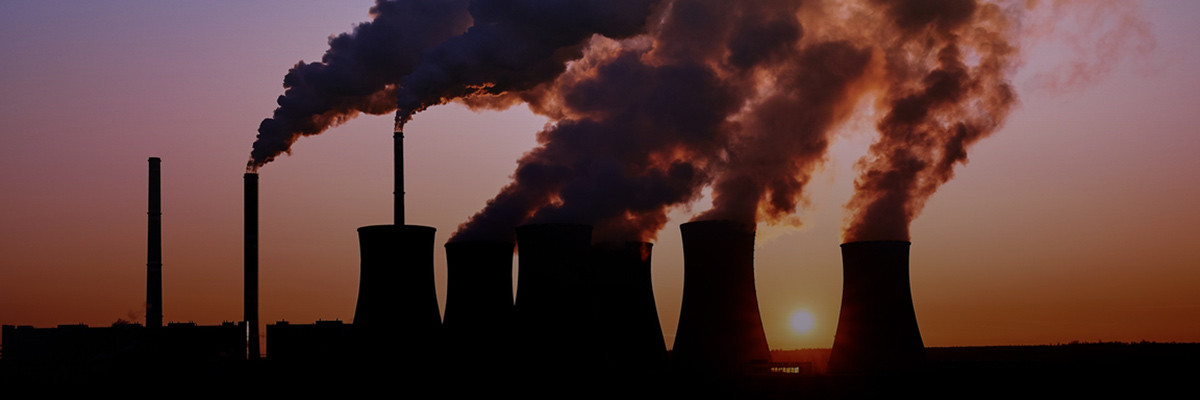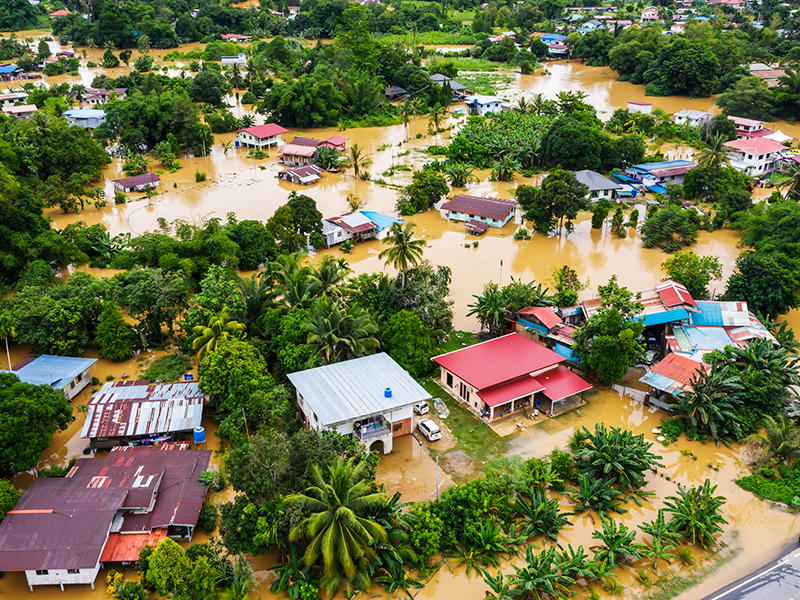
Authors
-
Samantha Harris
Former Associate Director, BSR
The UN Secretary General’s Global Climate Action Summit is now just days away, and the world is anxiously awaiting new updated commitments from countries and other stakeholders that will help us meet the global goal of keeping global warming under 1.5°C. Against this context, the Global Commission on Adaptation launched its flagship report last week.
The report makes clear the stark reality of the global climate crisis and the irrefutable impacts on the planet, people, and the economy. Alternatively, enormous opportunity exists—but this hinges on how we choose to collectively develop solutions as a society. How governments plan and implement adaptation policies, how businesses choose to manage climate risk with robust resilience solutions across their entire value chains, and how we, as individuals, make choices in our lives will be the difference between success and failure to respond to the expected climate impacts already locked into the system.
Climate change is a material risk to business across operations, supply chains, and in communities vital to the fundamental existence and continuity of a business. And while the list of impacts and resulting climate risk to business grows as the amount and intensity of climate-related events rises, the opportunity to address these risks through robust climate resilience solutions also increases.
The Global Commission on Adaptation’s report highlights the tremendous opportunity that comes with adapting to climate change. They estimate that investing nearly US$1.8 trillion in adaptation could result in net benefits of four times that amount: US$8 trillion. This provides a clear opportunity for business to benefit financially, to protect business continuity, and to increase the resilience of vital communities around the world.
Investing nearly US$1.8 trillion in adaptation could result in net benefits of four times that amount: US$8 trillion.
Business can do this by first acting within their own value chain through the assessment and management of climate risks and also by enabling and influencing other partners through collective action to address the system-side problems society faces today. To make it easy, we’ve seen an influx of ways to categorize and report on corporate climate risk: the recommendations from the Task Force for Climate-related Financial Disclosures provide companies a simple and clear categorization of the acute and chronic physical and transition risks to climate change as well as a methodology to communicate and disclose those risks.
Recognizing the challenge climate risk poses to their collective value chains, companies like Mars Incorporated, The Coca-Cola Company, PepsiCo, Anheuser-Busch InBev, Target, and Santam Limited have collaborated with BSR to establish the Value Chain Risk to Resilience platform. Formally launched in July 2019, the platform aims to build climate resilience for communities, farmers, and workers along value chains and through the following outcomes:
- Risk Assessment: Scalable best practice methodology for climate risk assessment
- Resilience Metrics: Shared metrics to measure impact of climate resilience-related interventions, improved tools and collateral for communicating impact of resilience-building efforts
- Business Integration: Consolidated framework for assessing governance of climate risks; identification of existing and/or recommended tools, such as the TCFD, for integrating climate into risk registers and ERM processes
- Programmatic Work: Scale up of an innovative pilot intervention via shared resources of the group, at least one designed collaborative on-the-ground effort that uses the shared metrics of this platform to build resilience for a particular community or commodity
On the cusp of the UN Secretary General’s Climate Summit, BSR is partnering with the Global Resilience Partnership, a group of organizations, companies, and other stakeholders working to drive resilience programs and work across the globe, to convene an entire day dedicated to climate resilience on “Building a Resilient Future” on Sunday, September 22, in New York.
The event will feature high-level speakers across constituencies, including corporate perspectives on climate risk and resilience from companies such as Mars Incorporated. For more information and to register for the event, please see the complete program here.
While reducing emissions and keeping global warming to safe levels—under 1.5°C—remain the priority, we must also manage the unavoidable climate impacts affecting the world, including business. No one actor—government, business, and global citizen alike—can do this alone. We must align to protect valuable economies, ecosystems, and communities imperative to our society’s existence, and business as humanity’s natural solution provider can lead and benefit.
BSR’s latest sustainability insights and events straight to your inbox.
Topics
Let’s talk about how BSR can help you to transform your business and achieve your sustainability goals.







